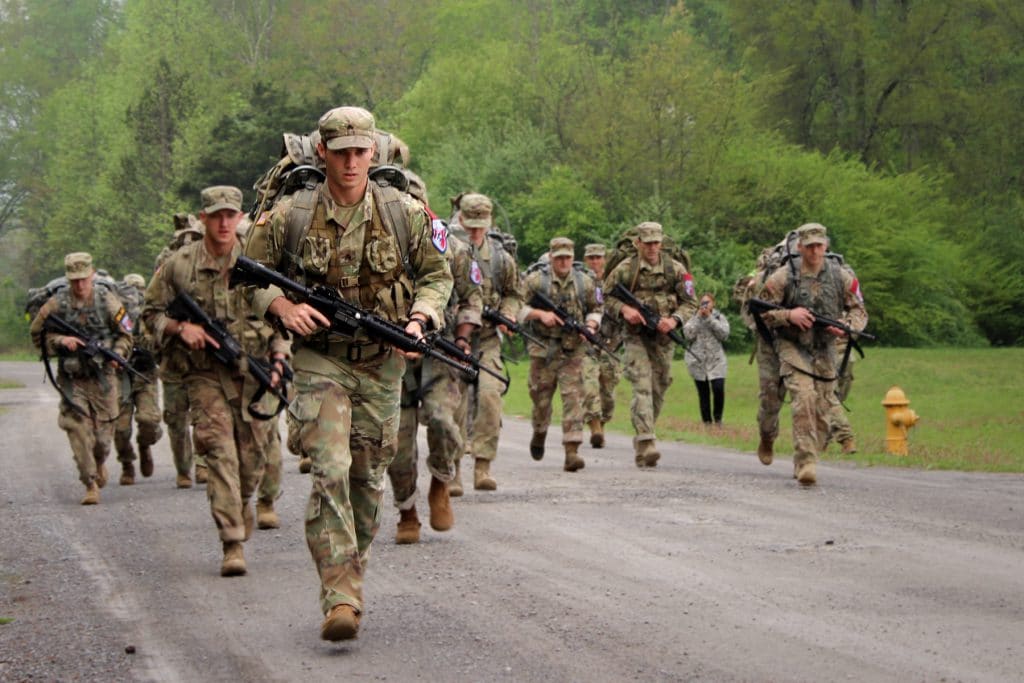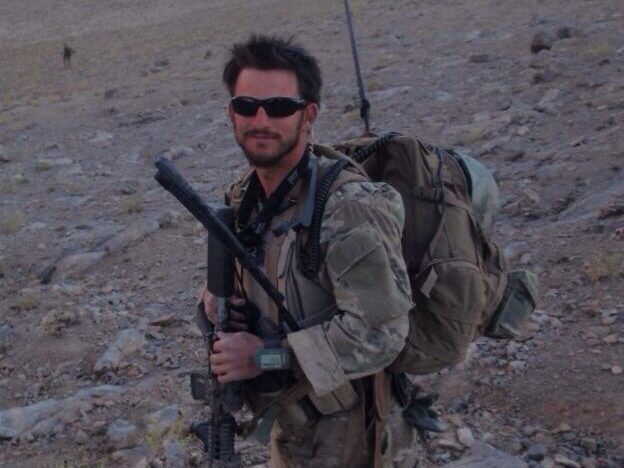
Article Contents
I don’t have a batting tee drill or hitting product to explain today, but I do have a personal story from Special Forces training where I learned a valuable lesson. It was a major gut check that almost ended up tanking my aspirations to become a Green Beret.
I’m glad it happened.

It was the night before a 12-mile forced road march during the Special Forces training pipeline, and I was prepping my equipment to ensure the morning was quick and smooth. Our packs (rucks) had to be forty-five pounds before adding water, so the total load was fifty-five pounds and we had twelve miles to move in the early AM. No big deal….
This 12-mile route was one of the tougher courses on Fort Bragg. It was an endless hilly section of dirt roads and washouts. To make time, you had to move faster and work harder than on a flat cement surface.
By this time in the Special Forces Qualification Course, all of us were barrel-chested and highly motivated, and a 12-mile movement was routine. Even in rain, burning heat, heavier rucks, or in this case below freezing temperatures.
We had done more of them than I could remember.
So, with my equipment checked and weighed the night before, I staged my ruck outside in the freezing temperatures for a quick grab-and-go in the morning. We began the movement at 6AM. The instructions were clear and simple: make it to the finish line in three hours or less, no excuses, no exceptions, no talking during the event. I wasn’t worried. We had gone farther and heavier.
It was all routine. Until it wasn’t….
Thirty minutes in I was cruising at my normal pace well ahead of schedule. I needed a drink, so I reached back for my water hose and that’s when it happened.
The Gut Check Reveal
It was mile 3 of 12. My water is frozen. The hoses are frozen. I have nothing to drink, and I’ve got two more hours to go. I can’t ask for help, and I can’t stop to figure something out because I’m on the clock.
This was a real problem with real consequences. If I didn’t make it in 3 hours, I’d be recycled back to nine weeks prior with a red flag on my file and the stigma of being one of the only guys to fail such a routine event. If I pushed too hard with no water, I could cramp, pass out, or worse.
Seems unfair sometimes how you can make your best effort to prepare so you put yourself in the best position to succeed, but still, things go south.
What do You do When Your Plan Goes to Heck and the Unforeseen Happens?
When you plan your best, do everything right with the best intentions but still, Murphy throws a curveball? You need to make a choice and then act.
Immediately, I assessed my situation and adjusted my pace and stride. I slowed to a brisk walk to reduce my body’s need for water. Soon others on the march began to pass, and I knew my pace was slowing down way too far.
When I reached the halfway point, my instructor said "You need to pick it up, this is a Go/No-Go event."
I was gassed, cotton-mouthed, and had a quick whoa-is-me thought like “This is going to be rough, why is this happening to me.” At mile eight, my quads started bubbling with every step.
Bubbling quads are the beginning of cramping quads, and serious cramps would mean total mission failure – no way I would make 3 hours, I’d fail, and I would earn a nine-week recycle to repeat everything we had just accomplished during this phase of training (some of that training was not-so-routine).
All these terrible outcomes looming over me with over an hour left in the event, and all because I packed my ruck early and set it outside trying to do the right thing. One little mistake (even with the best intentions).
As I continued to move cautiously toward the finish line, I found a stride something like a bouncing, slow jog. I was cotton-mouthed and the cramps were moving into my stomach and abs at this point. It was becoming hard to move.
But there was nothing I could do except continue to move. Why fixate?
No one was coming to the rescue.
There was no complex action plan to fix this. It was a gut check, a mental and physical bout.
- Manage my movements, so I don’t cramp catastrophically.
- Go as fast as I can but slow enough to not seize up.
- Get there in time.
- One foot after the other.
- Suck it up.
Eventually, I made it with three minutes to spare. Not one person asked what happened or how I was doing. That wasn't the culture at this stage of training. No one cared that I had a personal calamity occur which put me at a disadvantage.
And that’s ok, that’s life.
In the end, it was a grueling test that gave me a few gifts I kept in my tool belt today. First, I had more in the tank when I required it, both mentally and physically than I had previously thought. We all do. I reached what I thought was my limit and pushed through. New limits equal new opportunities.
Second, it proved to me for all time that all the training, preparation, and good intentions in the world do not protect us from bad things happening. The SF mindset is to expect the unexpected. Adapt and overcome.
Could You or Your Team Use a Gut Check?
How do you respond to adversity?
Do you embrace the suffering and perform? Or do you wait for the rescue?
As coaches parents and business people, we get curveballs all the time. Isn’t it the norm?
Your three-year-old needs to be picked up from school because she’s sick, but you have a pressing deadline at work. You need to figure it out. Your team bus breaks down, and you get ten minutes to warm up. Will the team be non-mission capable because their routine got challenged?
Plan for the best, but expect your plan to be challenged.
Emphasize Adaptability as a personal trait and a team value. Train to become adaptable.
The unforeseen is going to happen.
So, when it happens, try this... Say to yourself, "This is a gut check, it is what it is, and it's not unique to me," then be thankful for the opportunity to be tested. No one gets better by only hitting the baseball sitting on the tee at belt-high. Hardship and true challenge is the opportunity for growth. Real-world scenarios are always better than the very best contrived training. You can't recreate every stress in practice.
Accept that your best intentions or efforts no longer matter at this moment in time. You can feel good that you did your best to be here, but the game has changed.
Embrace the challenge ahead. That bad spot is a freely given opportunity to improve yourself. Confidence. Fortitude. Toughness. Grit. Compassion. Empathy. All stem from enduring and succeeding.
Finally, move on from what was and look at what is.
Seriously, move on. Get over your strikeout. Get over the ground ball you booted. Be aware of why you failed, but as one highly decorated Special Operations legend said "Fail Quickly" and move on.
Being aware and learning from the past is certainly important. But when you are in the fire, focus on the now. Do not wait for rescue.
A gut check is the best training for gauging your readiness, to grow in character and confidence...
...and to push your performance level into a place you may not have known existed.
To your success!

 Default Currency
Default Currency







